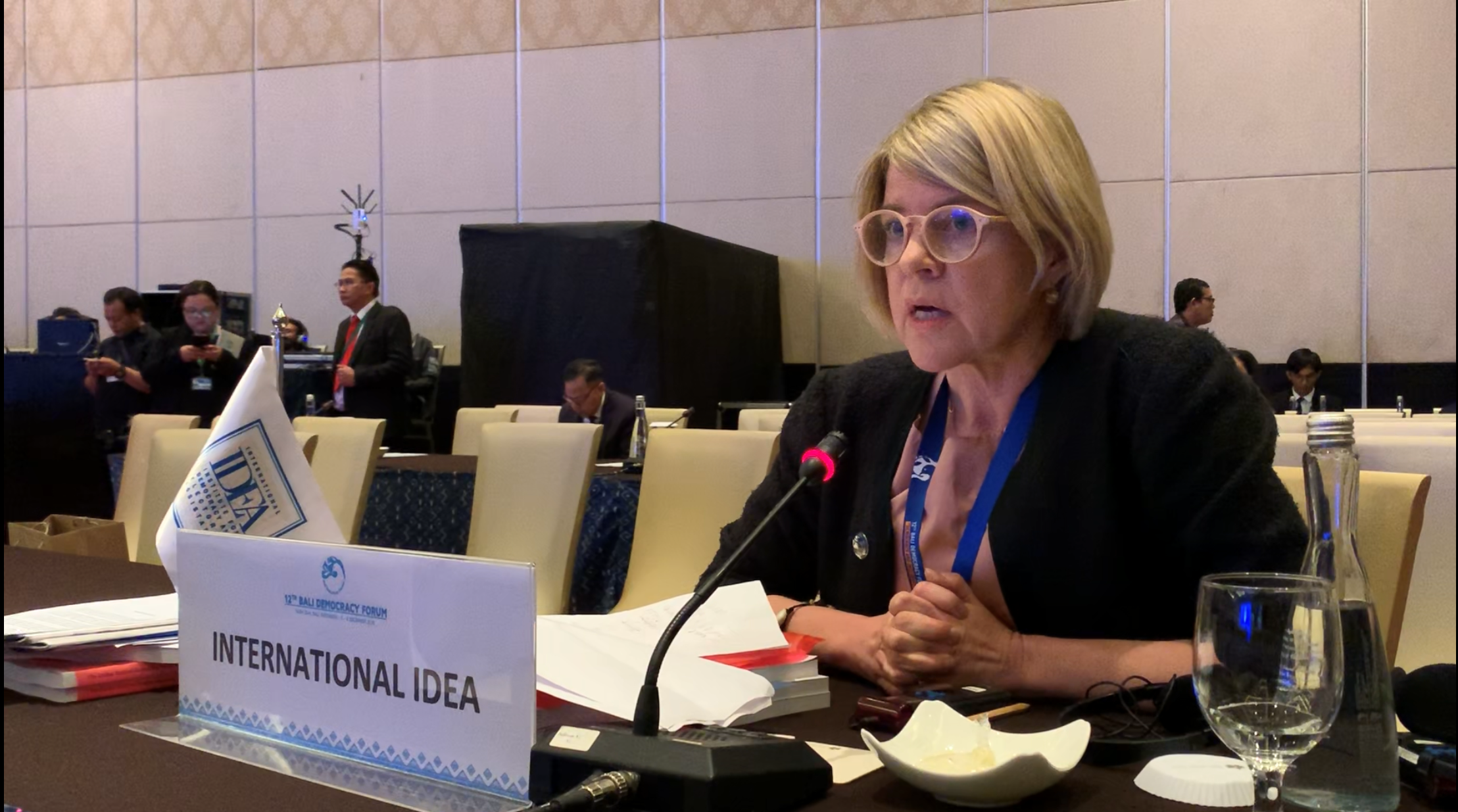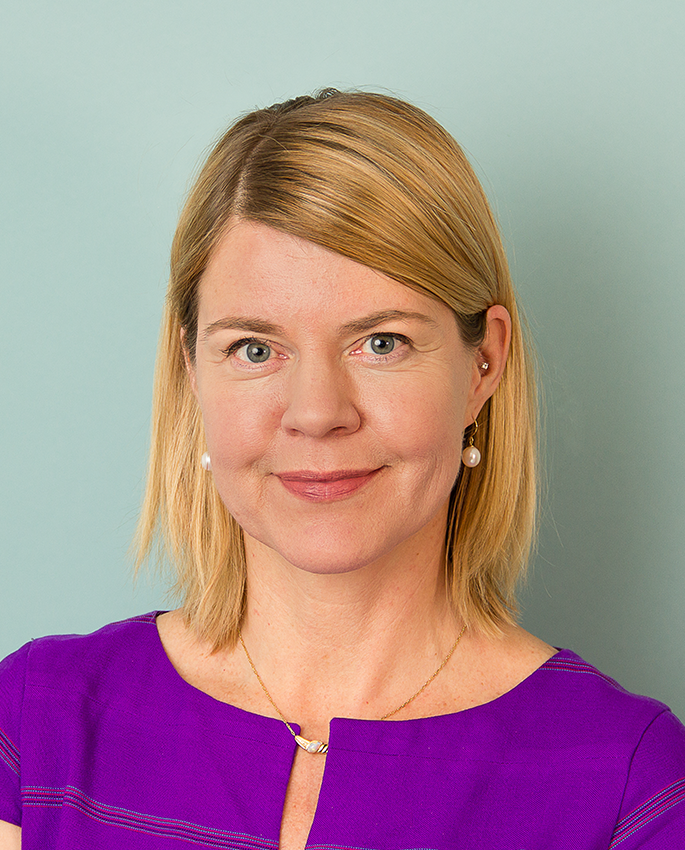International IDEA Statement at the 12th Bali Democracy Forum, session one about Moving Towards Inclusive State Building

Bali Democracy Forum 5th -6 December
Distinguished speakers and attendees,
I would like to use this opportunity to share a couple of thematically relevant findings from International IDEA very recently published Global State of Democracy Report. I will share the findings that I believe resonate with what the panelists talked about in terms of moving towards inclusive state-building.
The report is a biannual health check of democracy, identifying encouraging democratic trends as well as key challenges to democracy. The data analysed in the report covers a period from 1975 until 2018.
Number one:
The number of democracies continue to rise but its quality is declining.
While the idea of democracy continues to mobilise people around the world, the practice of existing democracies has disappointed and disillusioned many citizens and democracy advocates. Many world values surveys evidence that people do prefer democracy over any other form of governance but are losing trust to institutions critical to democracy such as political parties, parliaments, courts, and impartial bureaucracy, and at times to also to elections.
Number two:
The world has made good progress on what it comes to representative governments, including clean elections and citizen participation. However, Progress on some other crucial aspects of democracy has been slow. These aspects include the absence of corruption, gender equality, social group equality and strengthening of judicial independence.
The absence of corruption is the only aspect of democracy that has actually deteriorated globally in the past four decades. corruption is the aspect of democracy that is most highly correlated with basic welfare, and hence critical to human development and to the achievement of the 2030 agenda.
At the rate of progress of the past 10 years, it will take another 46 years to reach gender parity in parliaments. No regional average has reached the ‘critical minority’ point of 30 percent of women legislators. Individual countries, of course, have, as we heard in case of Australia, Kenya and Namibia this morning.
Number three:
Democracy has proven resilient over time, however, we need to watch out for Democratic erosion which is occurring in different settings and contexts, including older democracies. The number of high performing democracies are decreasing and many of them are confronted with populist challengers. In fact, as per the report findings, there are only 21 high performing democracies in the world.
The more serious form of erosion is what our report calls Modern democratic backsliding which occurs from within the democratic system, through legislative and constitutional reforms and policy decisions by democratically elected majorities. The gradual hollowing out of the no electoral pillars, often starting with undermining the judiciary and reducing civil liberties and media freedom, ultimately damages democracy's core principles of popular control and political equality.
So what should be done to advance inclusivity, and revive the promise of democracy? Policy recommendations are many but to mention here only one: government should seek ways to protect their citizens against the disruptive effects of economic crises and globalization. This requires policies that enable vulnerable groups within society to adapt to job losses and provide them with equitable access to services, employment, opportunities and resources.
We have to ready to protect democratic gains against risks. Trust in electoral processes and institutions can be easily lost. When it happens it is difficult to restore.
Thank you all for listening.
